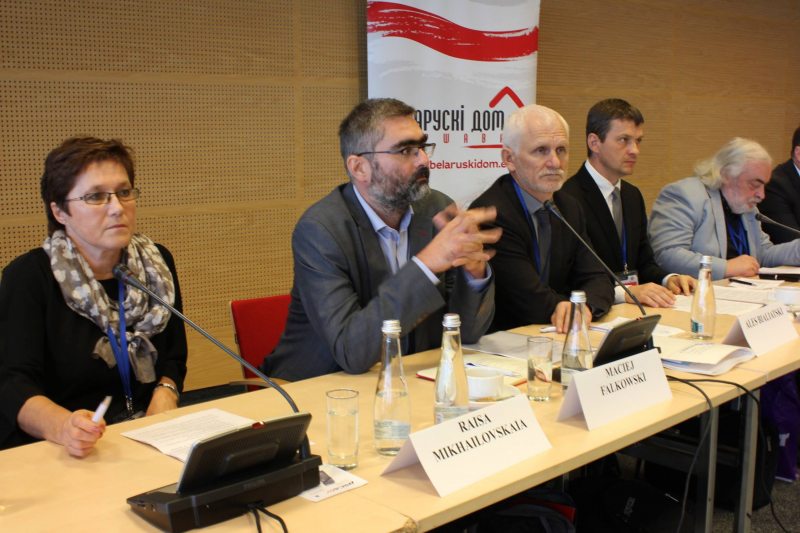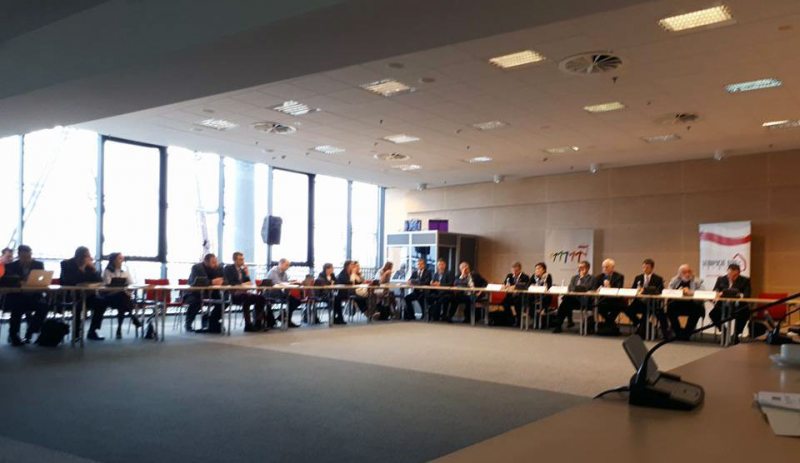Ales Bialiatski: West tends to downplay repression in Belarus

Ales Bialiatski at a side event “Human Rights in Belarus – From the Case of Patriots to the Case of Labor Unions”. Warsaw, September 11, 2017
The Belarusian House Foundation in Warsaw hosted yesterday, September 11, a side event as part of the OSCE ODIHR Human Dimension Implementation Meeting 2017. The event entitled “Human Rights in Belarus – From the Case of Patriots to the Case of Labor Unions” involved several Belarusian human rights defenders and focused on this year’s wave of repression in Belarus, including the ‘White Legion case’ and the criminal charges against trade union leaders.
Ales Bialiatski, head of the Human Rights Center "Viasna", said in his speech that the country’s prisons continue to hold three political prisoners: Ihar Komlik, Dzmitry Paliyenka and Mikhail Zhamchuzhny. The international community should not forget about them, Bialiatski said. However, the West tends to downplay repression in Belarus, he said, which can lead to apparent double standards in assessing the human rights situation in Belarus.
“The undemocratic Belarusian regime has so far received quite adequate reactions. And for us it was the strong support of our activities. After all, this is a very important to have true and unbiased reactions. So that we do not repeat the situation of Azerbaijan, where there are dozens of political prisoners and at the same time the Azerbaijani authorities are in contact with European politicians, or even involved in some corruption scandals. Azerbaijan is a member of the Council of Europe, and at the same time the country shows one of the poorest human rights records. Clearly, this is the aftermath of geopolitics,” Ales Bialiatski said in a comment to racyja.com.
When asked about the possible scenarios in the ‘trade unions case’, Viasna’s leader said:
“Of course, the unions were attacked for a reason, with regard to their active position, and taking into account the probable escalation of social protests later this fall or next spring. The authorities have been taking preventive steps that might scare the civil society and disarm the independent trade unions. The case itself has an obvious political context.”
The fate of the trade union leaders, Ihar Komlik, who is now in jail, and Henadz Fiadynich, released but under investigation, depends primarily on the reaction of the Belarusian society and the pressure of the international community.



















